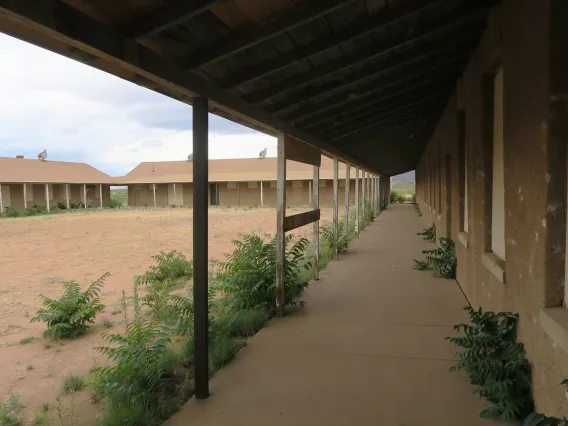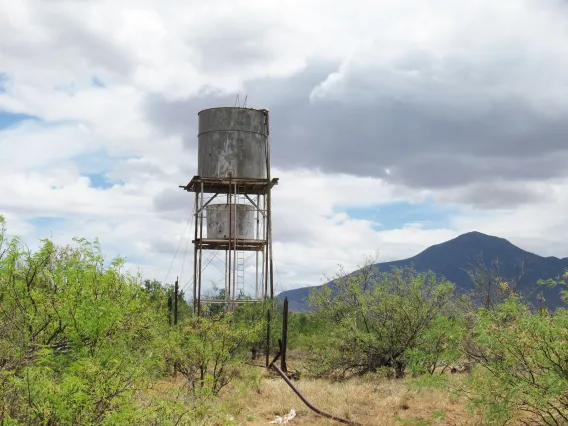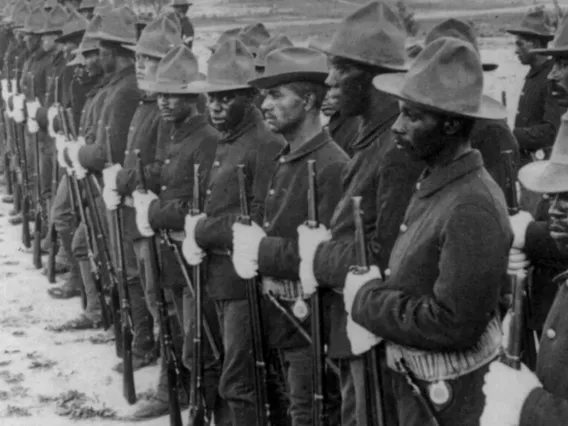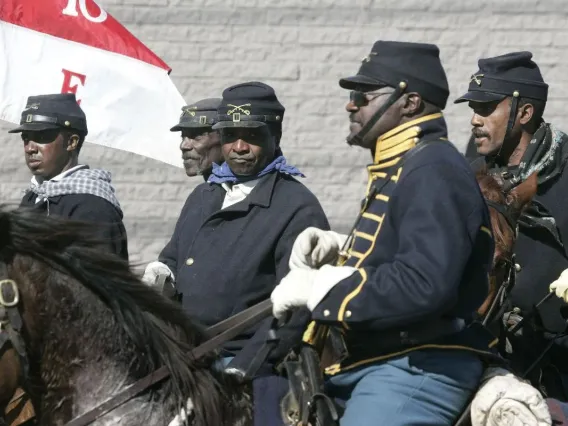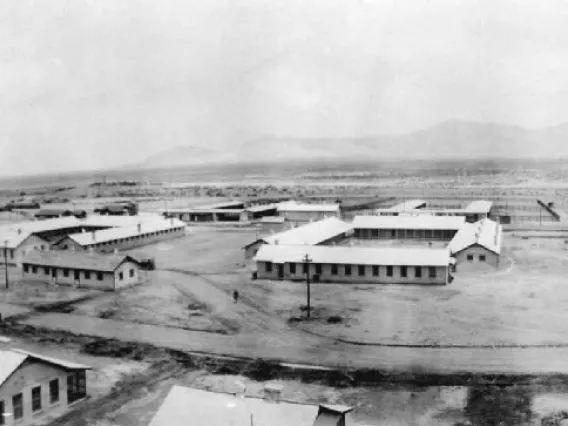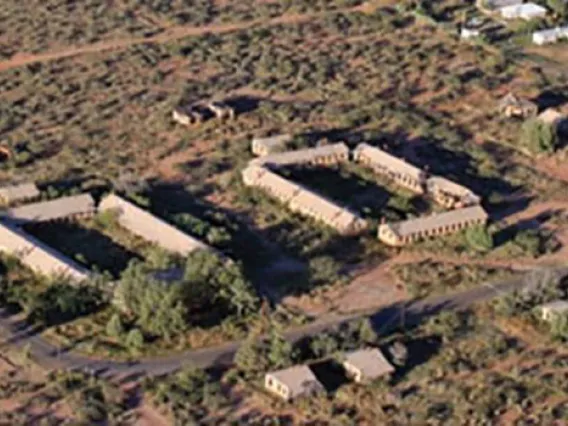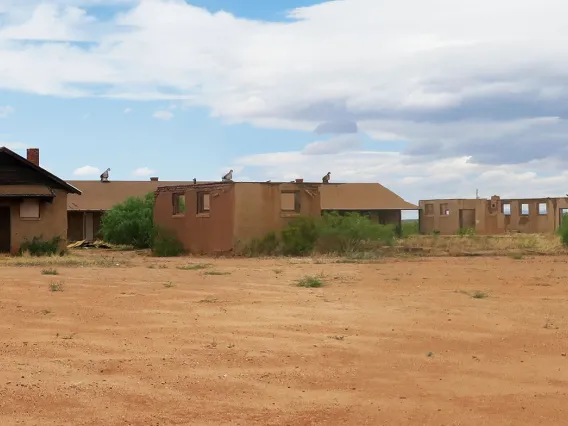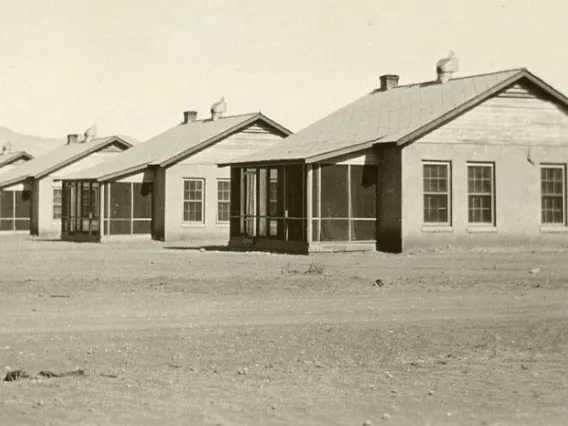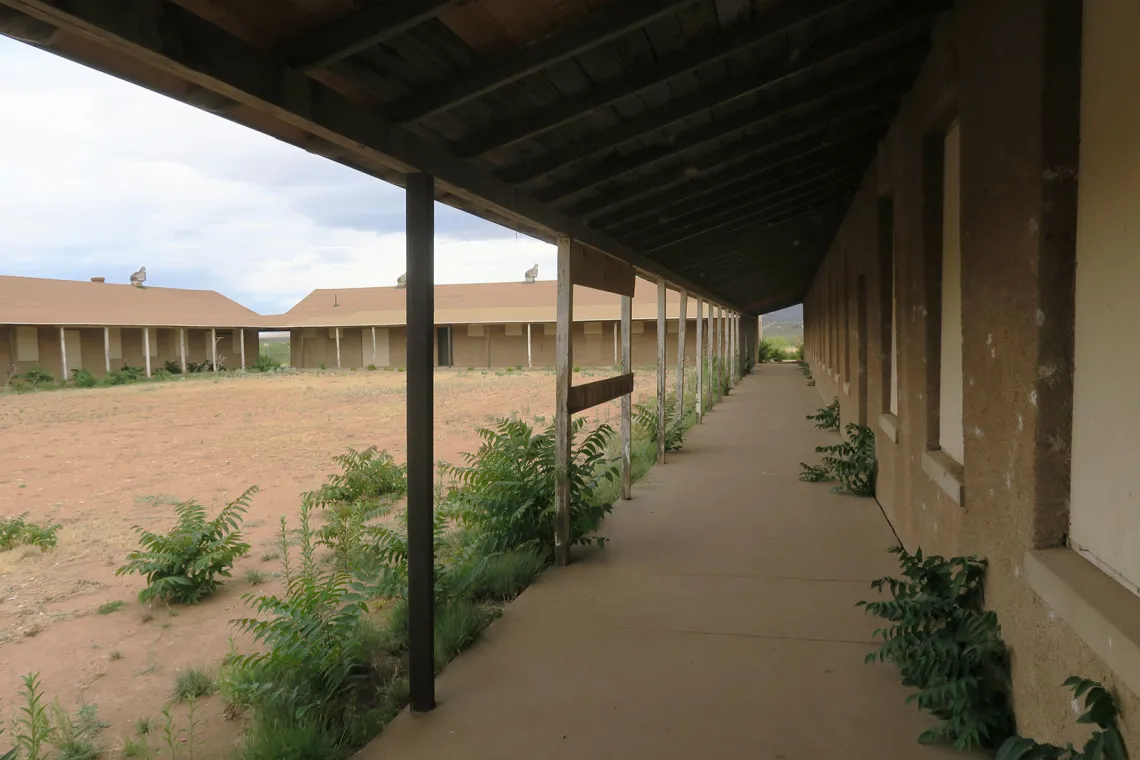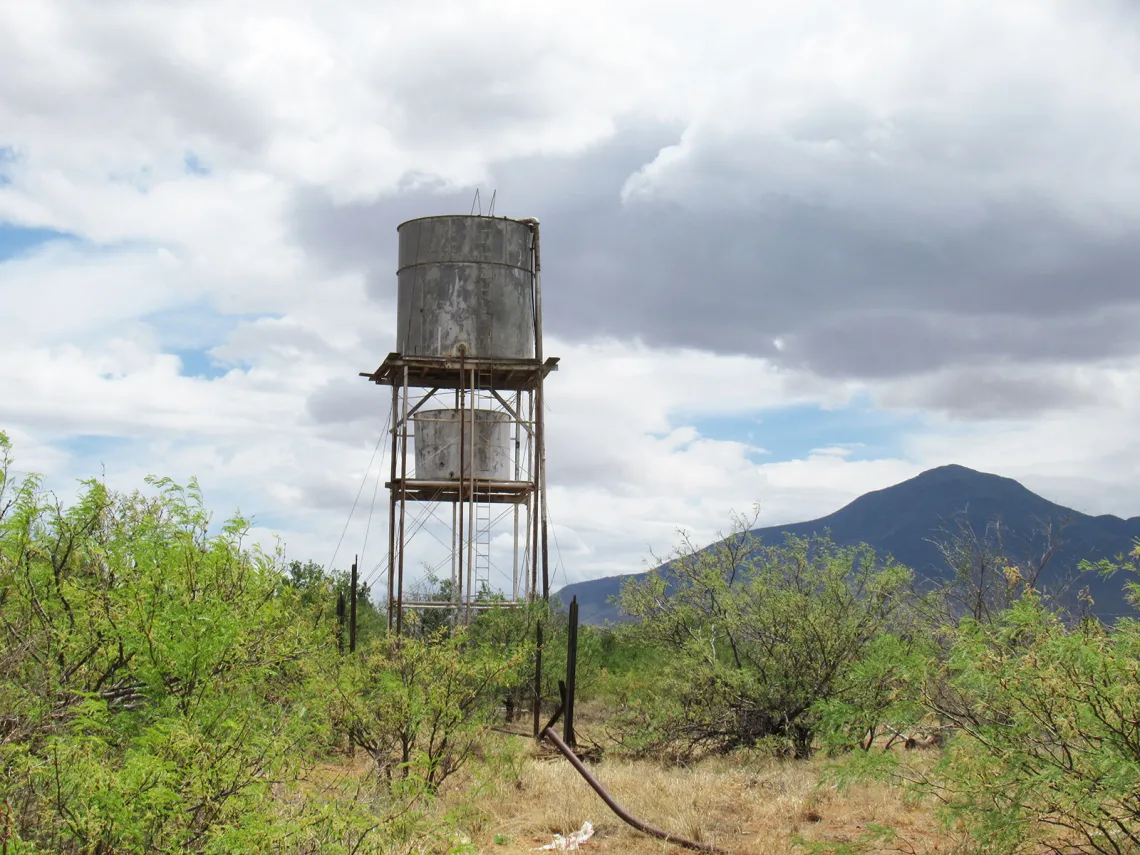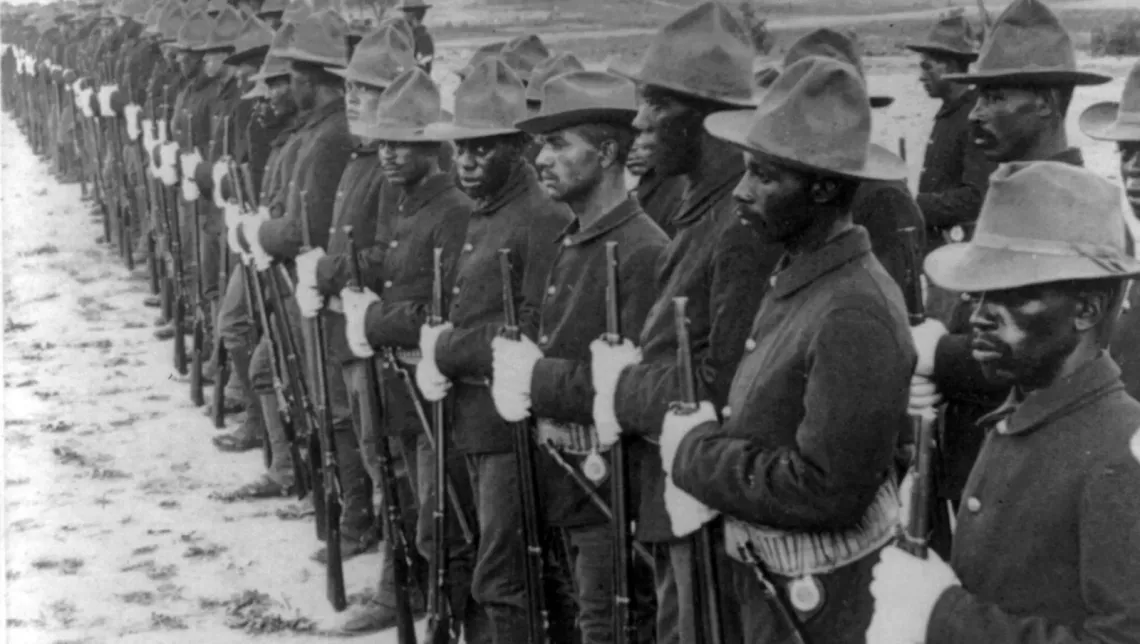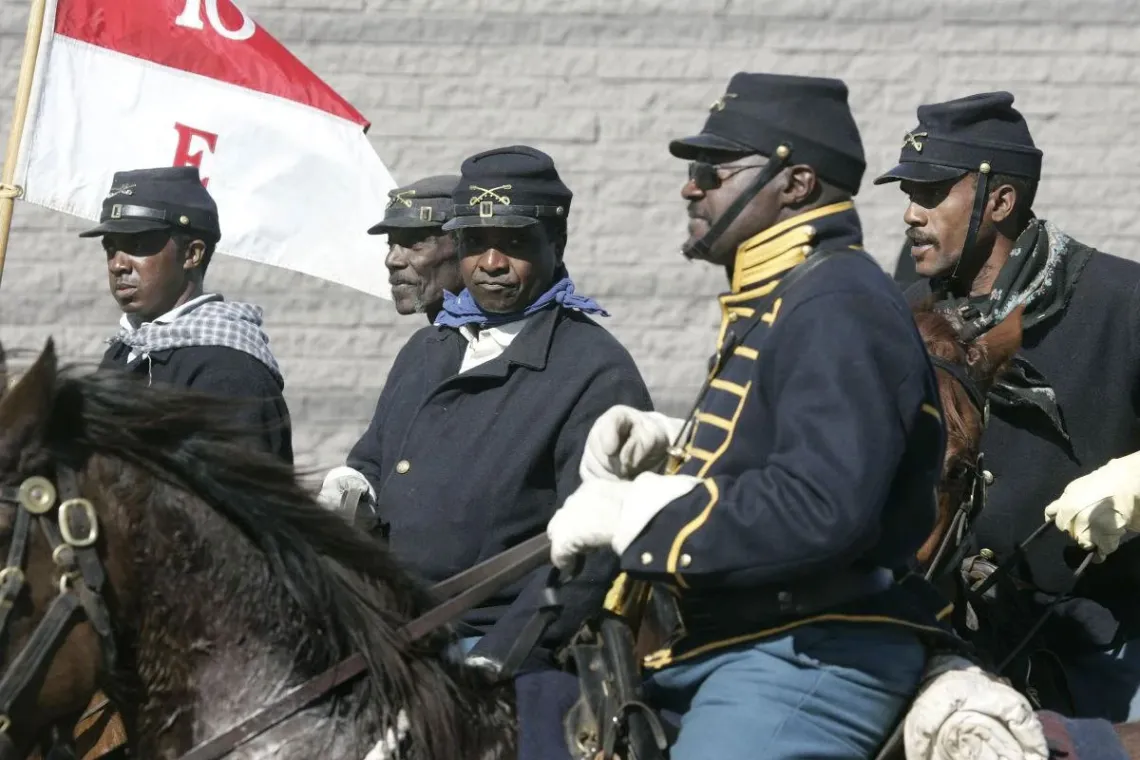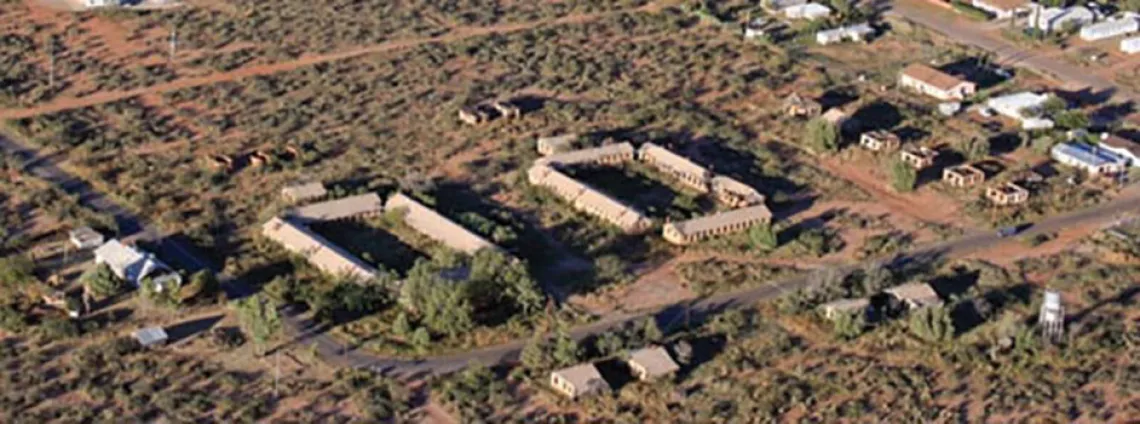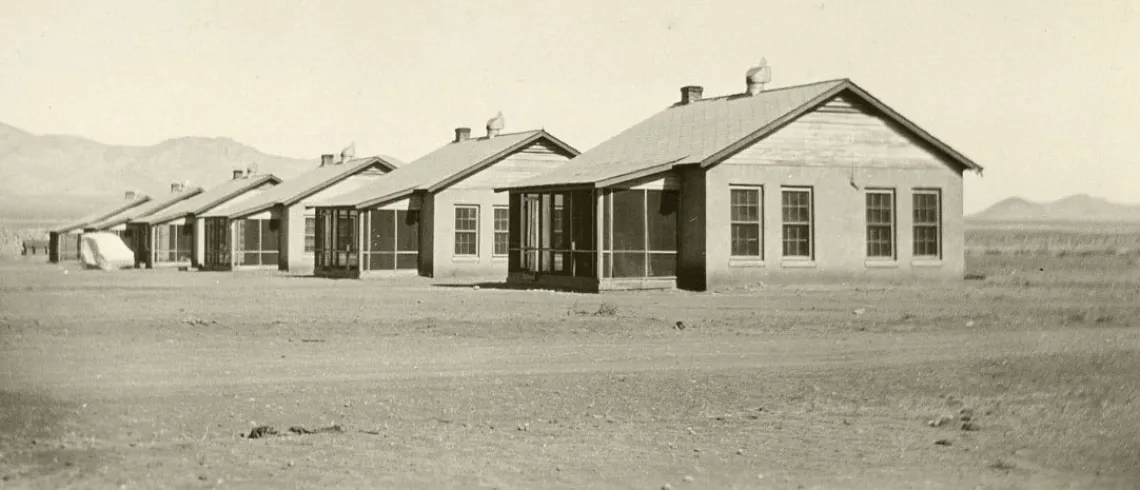Camp Naco Story Map
Social Equity, Identity + Community and Heritage Conservation
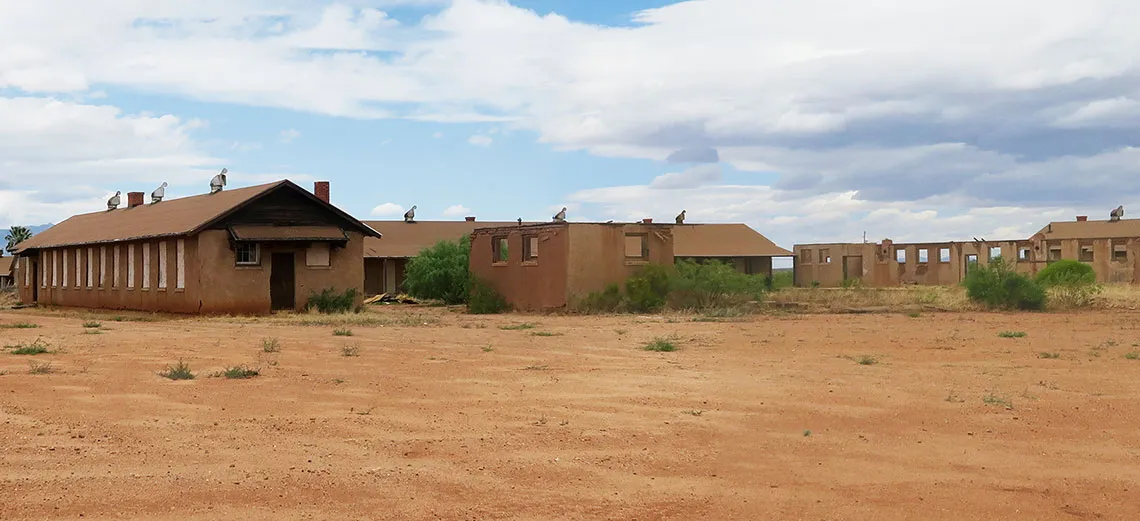
Camp Naco in Southeastern Arizona. Photo by Helen Erickson.
Project Overview
At the time of the Mexican Revolution, a string of 35 military camps were established along the U.S. Southwestern border with Mexico from Brownsville, Texas to Arivaca, Arizona. Camp Naco, built of adobe, is the only one of these facilities remaining today. Staffed by the Ninth and Tenth Cavalry of Buffalo Soldiers, it bears witness to the service of these segregated troops at the beginning of the 20th century. The story map will tell the story of the camp and its meaning both to the descendants of these soldiers and to African American members of the military and their families today. For visitors to the camp it will provide a virtual guide to the site. For national and state groups that celebrate the history of the Buffalo Soldiers, it will provide a way to connect the work of these organizations to one another.
This project is led by Helen Erickson, project director, Heritage Conservation Program, and CAPLA students Sarah McDowell MLA, MS Urban Planning and Teresa DeKoker MLA.
Community Partners
- Naco Heritage Alliance
- Archaeology Southwest
- AZ Geo
Gallery

